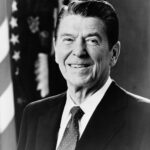Economic Sanctions Are Not A Solution to War
There are a lot of opinions circulating as to what should be done to support Ukraine’s fight against the Russian invasion and avoid the outbreak of World War III.
While the U.S. has authorized a $14 billion support package to Ukraine, as of now, the Biden Administration’s primary strategy has been to impose economic sanctions on Russia to strong-arm President Putin into abandoning his quest to takeoverUkraine.
Economic sanctions are often sold to the public as an alternative to a “hot war.” This idea that coercing another country to meet U.S demands by restricting their financial relationship with the rest of the world might seem like a softer and more effective approach to foreign conflict. But in reality, it’s much more complicated.
Not only has history shown sanctions to be ineffective in changing behavior, but sanctions are, in themselves, acts of aggression that fan the flames of war.
Worse still, it is the people, not the government leaders, who suffer the most.
Since the conflict in Ukraine reached a boiling point about a month ago, the U.S. has implemented severe sanctions on Russia’s banking system that has essentially cut them off from doing business with the rest of the world.
By freezing Russia’s central bank’s U.S. assets, America has prevented the country from “using its foreign reserves to prop up the value of the Russian ruble.” As a result, the ruble has already lost 40% of its value.
The U.S. has also frozen of Russia’s most powerful and wealthy businessmen.
As Treasury Secretary Janet Yellen said, “Treasury is committed to holding Russian elites to account for their support of President Putin’s war of choice.”
The U.S. Commerce Department has also limited the exporting of tech products, like computers, to Russia to deal a blow to its military capabilities. Even American technology manufactured in other countries is forbidden from being sent to Russia.
The importation of certain Russian goods to America, like alcohol, has also been prohibited.
Private companies like Shell Oil, Visa, Mastercard, Netflix, Disney, Apple, and others have also implemented their own trade restrictions on Russia. While it is better to have sanctions imposed by private companies, rather than the government, these restrictions still serve as another step in the escalatory ladder.
French economist Frédéric Bastiat famously said, “If goods don’t cross borders, soldiers will.”
Bastiat, along with other free market economists, rightfully believed that trading with foreign nations fosters a climate of peace. If countries are engaging in the exchange of economic goods, they are incentivized to build amicable relationships and avoid international conflict.
Without these incentives, bloody conflicts become more likely.
With harsh sanctions now in place, Putin responded by describing America’s restrictive measures, as being “akin to an act of war.”
Putin is, no doubt, a tyrannical leader who has inflicted his own authoritarian chaos on the Russian people for years. But now, in addition to living under harsh political conditions, innocent civilians are being harmed by the west’s economic sanctions.
The American government has a longstanding history of neglecting to consider the unintended consequences of its actions. But as tensions continue to mount, we must not forget that it is not only Putin and his gang of oligarchs who suffer the devastating consequences of these financial restrictions.
As supplies are cut off and the ruble loses its value, the price of just about everything is going up in Russia. While the elites have more wiggle room to afford the day-to-day necessities, regular Russian citizens do not.
Worse still, as Russia continues its isolation from the rest of the world, Putin has made threats to crush dissent from those who do not step in line with his war.
In a chilling warning issued to his anti-war countrymen, he said:
“The Russian people will always be able to distinguish true patriots from scum and traitors and simply spit them out like a gnat that accidentally flew into their mouths.”
”I am convinced that such a natural and necessary cleansing of society will only strengthen our country, our solidarity, cohesion and readiness to respond to any challenges.”
Putting the current situation aside for a moment, historically, economic sanctions have been shown to do more harm than good.
When the United Nations imposed sanctions against Iraq the mortality rate for infants and children under five doubled. Those children had no part in the conflict, but they paid the price.
In the 1990s, U.S. sanctions on Cuba resulted in a shortage of nutritious food and a rise in infectious diseases and are said to be responsible for the deaths of elderly civilians.
And while ordinary people suffer, the sanctions do very little to accomplish their intended goals.
When Russia invaded Afghanistan in 1979, America’s grain embargo did nothing to halt the invasion. Likewise, the export restrictions on technology during the Cold War didn’t even impact Communist states to a significant degree.
More recently, in 2014, when America imposed sanctions on the Central Bank of Russia, the government developed alternative ways to continue international trade.
In the end, sanctions only stoke the fires of conflict, and perhaps just prolong the inevitable, at the expense of the innocent who want no part in the wars started by their governments.
What should be done about the current situation is a complex question. But sanctions do not provide a viable alternative to war, instead, they help pave the way to international violence.




